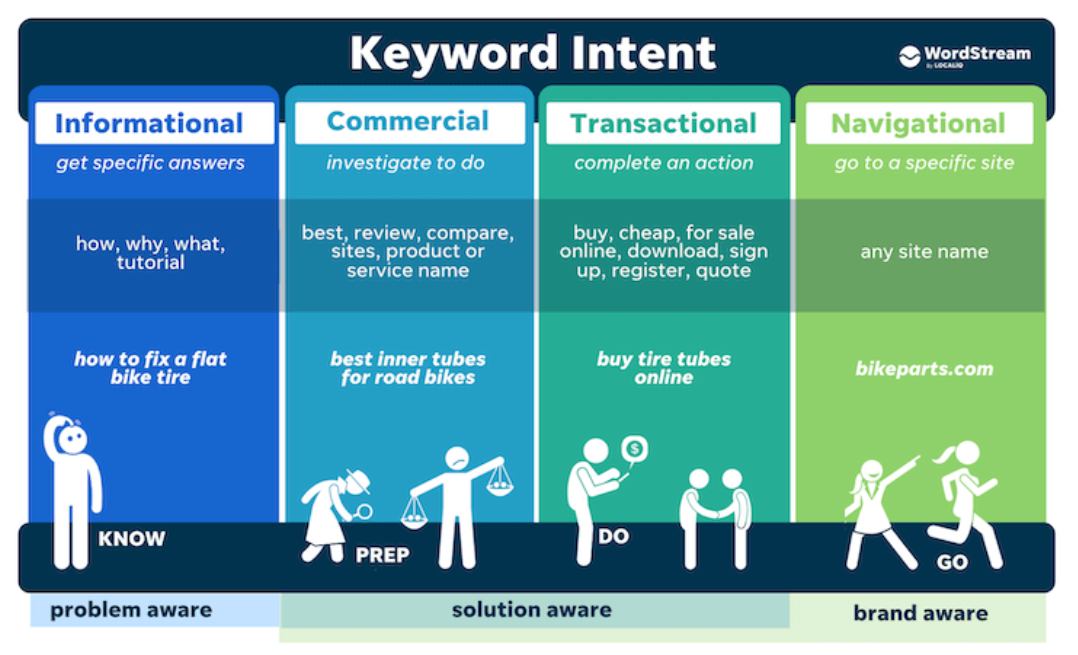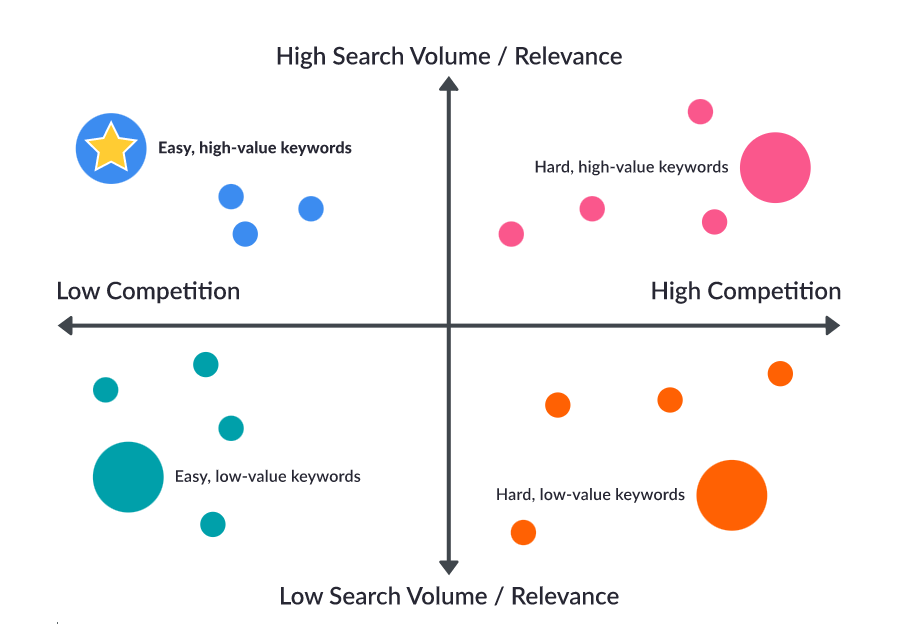Keyword Tools for SEO: The Ultimate Guide for Research [2024]
Keyword research is one of the most critical elements of search engine optimization, and that’s why it’s so important to use keyword tools for SEO like the ones in this article.
Free keyword research tools are essential resources for both beginners and more experienced SEO professionals, offering unique features and accessibility without incurring costs.
Without them, you’re just guessing at which keywords might perform well on search engines, and that’s a surefire way to get your site penalized by search engines or have it get lost in the shuffle of sites vying for top rankings.
Keep in mind that ranking for a specific keyword means you need to put in a significant amount of effort: thinking about your content, writing, on-page SEO, link building from beginner to advanced techniques, etc..
This ultimate guide will walk you through some of the best keyword research tools available today, no matter your budget or knowledge level!
What is Keyword Research?
Keyword research is about figuring out the exact words and phrases people type into search engines when they’re looking for information, products, or services.
By understanding these search terms, businesses and content creators can tailor their content to match what people actually want to find. This means not only finding popular keywords with high search volumes but also focusing on terms that aren’t too competitive and are relevant to what they offer.
Good keyword research helps attract the right visitors, boost visibility in search results, and ultimately improve a site’s SEO, bringing more organic traffic their way.
Why Keyword Research Is Vital for SEO
You may have heard the word keywords before, but what exactly are they?
Keywords are words that people enter into search engines when they’re looking for information.
Search engines match up what people search with pages on the internet and display those results.
In this way, keywords work a lot like an index in a book because they lead you to find your destination – all without reading everything in between!
These matching words or phrases are usually listed at the top of each web page, with their relevance determined by how many times that word is searched by someone else.
For this reason, it’s very important to be strategic about which keywords you use and how often you place them throughout your content so that you can rank higher in search engine rankings.

When it comes to SEO, keywords are like a compass for your campaign…they tell you where to go or whether or not you’re making progress.
Researching keywords helps you better understand your target audience.
That’s because it gives you insight into what customers are searching for… as well as the exact words they use.
Moreover, it tells you what topics people care about (assuming you use the right SEO tool) and how popular those topics are among your audience.
Then, you can use them to dictate which keywords you should look for and target by keeping an eye out for the keyword difficulty score.
Keyword research has many benefits:
Trends Insight
Effective keyword research can provide helpful insights into current marketing and search trends. This will help you center your content on highly relevant topics and keywords your audience wants.
More Traffic
When you identify the best keywords for the content you publish, the higher your rank in search engine results will be. This means more traffic to your website. After all, it is one of the most important metrics for measuring your organic traffic.
Turning Visitors into Customers
If you use the right keyword, you can attract the right audience.
This means that you can provide them with a call to action that will lead them to the point of purchase.
By researching keywords for their popularity, buyers’ intent, and search volume, you can tackle those questions to which your audience wants answers.
You Need Different Keyword Lists for SEO and PPC
Just like SEO and PPC are different, so should be the list of their respective keywords.
Not everything works for everything.
The SEO keyword list is the set of keywords that you want to rank for in search engines, while the PPC (pay-per-click) keyword list is the set of keywords that you want to bid on in a pay-per-click ad.
If you think about it, there’s no reason why they don’t have to be the same.
You could have an SEO keyword list optimized for lower bids and more backlinks, then use that list for PPC campaigns.
But if you’re using the same words, it might not work as well because the searcher’s intent will be different.
You need different keyword lists for SEO and PPC because they serve different purposes.
The latter is mainly focused on driving traffic and sales leads, while the former is focused on ranking highly in search results — which can help with both of these goals, although neither will happen without a solid paid traffic strategy behind them first.
In the end, there are some key phrases that are ideal for SEO and others for PPC.
How to Research Keywords for Your SEO Campaign

Step 1: Make a List of Topics Based on Your Industry
In this step, you need to consider the topics you want to rank for.
You need to develop several topic clusters you think are important to your business, and then you’ll use them to help come up with some specific keywords later in the process.

Make a list of relevant topics based on what you know about your business. This will allow you to prioritize these topics so you can do in-depth research later on.
Put yourself in the shoes of your buyer personas.
And think about the types of topics that would be perfect for targeting your audience.
Are those topics connected to what your business does/offers?
Step 2: Connect Those Topic Clusters with Keywords
Now that you have a few topic clusters you want to focus on, it’s time to identify some keywords.
Consider what words and phrases people might search for to find a business like yours.
When choosing keywords, it’s essential to be realistic about what you can optimize for and select a list of words and phrases that make sense for your business.
Identifying related keywords in conjunction with popular keywords is crucial for effective keyword research. Tools like Google Keyword Planner and SEMrush can help you discover related keywords that may enhance your content strategy or advertising efforts.
Don’t fret.
The point of this step is NOT to come up with your final list.
This is more of a brainstorming stage, and you’ll be able to narrow the list down later on.
Step 3: Understand How Search Intent Affects Keyword Research
It is essential to understand your audience’s intent when searching your content.
If many people are looking for something you’ve written about, then make sure you include the keywords in the post, page titles, image captions, and alt tags.
The searchers’ intent can really impact how your content ranks.
Keywords can have different meanings behind the word itself.
Because it is vital to your ranking potential, you need to be extra careful about how you interpret the keywords you target.

For example, if a user starts searching with “how to….” they are usually looking for information, so plan your content accordingly.
You can also include keywords relevant to the topic but not necessarily something someone would search for directly.
These words help Google know your blog and rank it higher on search engine results pages.
In the end, it’s especially beneficial to use target phrases to draw attention to specific points of information or topics within a post.
Step 4: Check the Monthly Search Volume (MSV) for Your Keywords
Pick one of the keyword tools for SEO you use (more on that below) that analyzes keyword suggestions, and check the MSV to see if it makes sense to use that keyword in your content.
Monthly search volume is the number of times a keyword is entered into search engines each every month.
To access tools like Google Keyword Planner, you need a Google Ads account, which is essential for uncovering valuable keyword data.
Tools like Google Trends can help you find out the most searched keywords over related keyword clusters for free.
It’s Google Trends that feeds on that autocomplete feature you see when searching, and even if that can be quite annoying for the searchers, it can really help you from an SEO perspective.
Again, be sure to consider how competitive a certain keyword is by examining how many results show up after you type in that term.
You want to write content around what your audience wants to discover, and checking the search volume can help you do just that.
Step 5: Think About Long-Tail Keywords
It’s important to have a mix of short, more common phrases and long-tail terms because it’ll give you a well-balanced keyword strategy.
This way, you can think of how to better reach your long and short-term goals.

That’s because long tail keywords are generally searched less frequently, making them often (not always, but often) much less competitive and easier to rank for than the more general phrases.
Step 6: Check Your Competitors and Keyword Difficulty
Knowing which keywords your competitors are targeting is another step in figuring out what terms you should be looking at.
There are several keyword tools for SEO to help with this, such as SEMrush or the Google Adwords Keyword Tool.
Once you’ve found some good keywords, bookmark them and use them in future research steps to get a feel for how valuable they might be.
However, keep in mind….
Just because a keyword is important to your competitors doesn’t mean it should be important to you too.
BUT… understanding what keywords they are trying to rank for is a great starting point that helps you give your list of keywords another evaluation.
So, if your competitors are ranking for the same keywords that are on your list, you should work on improving your ranking for those.
Step 7: Use the Best Keyword Tools for SEO, Including Google Keyword Planner, to Your Advantage
There are some great tools out there, but the ones on this list are the best keyword tools for SEO anyone can ever need.
They will help you narrow down your list of keywords and get more specific with your search.
Using these tools is a great way to find new information about your niche, so you can get an edge on your competition.
Some of the most popular ones include:
Ahrefs
Ubersuggest
Google Keyword Planner
Keywords Everywhere
Moz
KWFinder, etc.
Google Keyword Planner
Google Keyword Planner is a powerful, free keyword research tool provided by Google Ads. It’s designed to help you discover new keyword ideas, get search volume data, and plan your keyword strategy effectively. With Google Keyword Planner, you can:
Find New Keyword Ideas: Based on your business, product, or service, the tool generates a list of potential keywords that you might not have considered.
Get Search Volume Data and Trends: Understand user behavior by analyzing how often certain keywords are searched and how their popularity changes over time.
Analyze Competition: Identify gaps in the market by examining the competition for specific keywords.
Plan Your Keyword Strategy: Create targeted ad campaigns by selecting the most relevant keywords for your business.
International and Local SEO Keyword Research
For businesses operating globally or with a local presence, international and local SEO keyword research is essential. This involves identifying and targeting keywords that are relevant to your business in specific regions or languages. To conduct effective international and local SEO keyword research, you can use tools like:
Google Keyword Planner: Utilize location targeting to find keywords specific to different regions.
Ahrefs: Leverage location targeting to discover region-specific keywords.
SEMrush: Use location targeting to analyze keywords relevant to your target markets.
Moz Keyword Explorer: Employ location targeting to identify keywords that resonate with local audiences.
Additionally, tools like Google Trends and Google Search Console can help you analyze search volume and user behavior in specific regions or languages. When conducting international and local SEO keyword research, consider factors such as language and cultural differences, regional search volume and trends, local competition, and keyword translation and localization.
Conclusion
This blog post taught you why keyword research is important, how to find keywords, use the best keyword tools for SEO, and decide which SEO methods work best for your particular niche.
With this in mind, it’s up to you to compose a strategy to help you rank pages and drive traffic.
Those keywords relevant to your SEO strategy should take into account relevance, authority, and volume.
However, keep in mind that there are no “best” keywords… there are only those highly searched by your audience.





